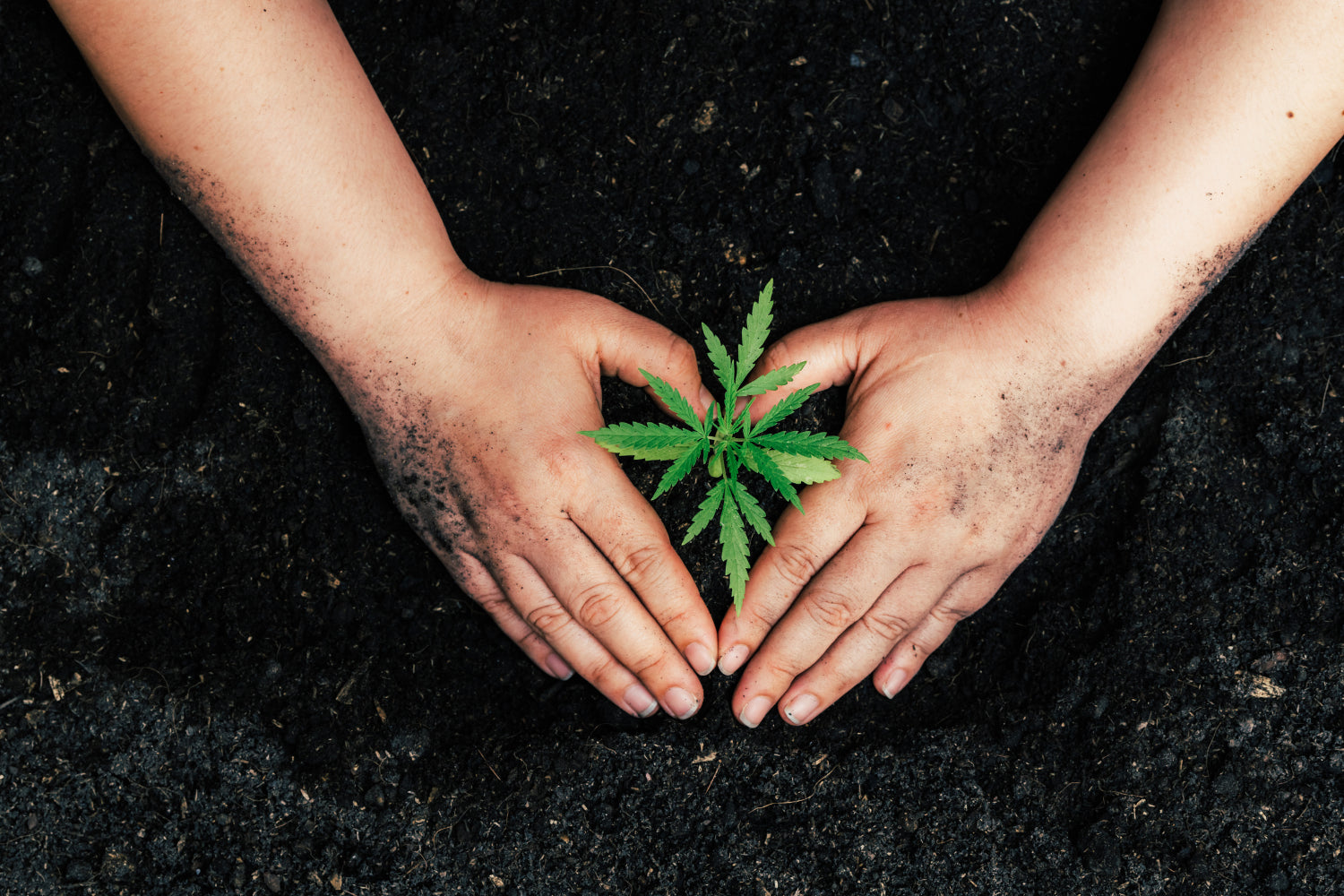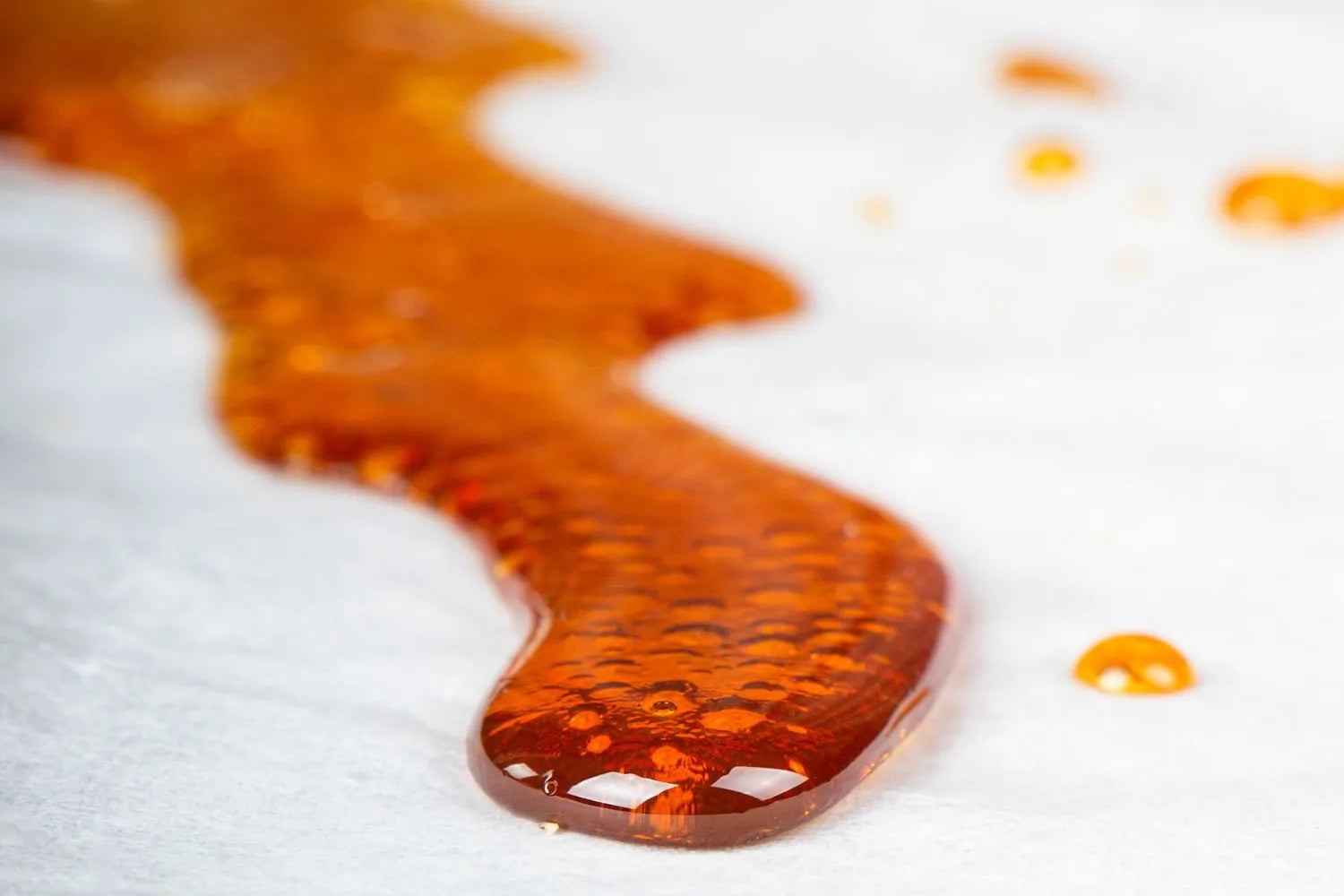The CBD industry has substantially increased the quality of every extract-based product from cultivation to purification. This begs the question as to whether any other areas of opportunity remain.
Generally speaking, CBD products are more reliable and effective than their ancestors in the early to mid-2010s. Vendors have nearly perfected their formulas, with new cannabinoids and other ingredients entering the mix.
With unprecedented public awareness and some human clinical research, CBD’s rise to prominence should encourage us to create the best extracts possible.
In other words, can premium CBD be better?
The answer is an emphatic “yes.” But while improving quality usually involves adding new practices and procedures, the dilution process is an old habit that we can - and should - break.
So what is dilution? Let’s look at what this practice involves and its potential consequences.
What is Dilution?
Generally speaking, dilution is the process of reducing a substance’s concentration. But dilution is far from a complex scientific process. We dilute things all the time.
For instance, adding water to a can of frozen concentrated juice is a typical example of dilution. Similarly, soda machines dilute a small amount of dense syrup with carbonated water.
But while frozen fruit punch or fountain drinks are designed to be diluted, CBD oil is another story.
Ideally, the product should remain unaltered from cultivation to extraction. Unfortunately, due to federal restrictions on THC content, even the highest-quality CBD oil needs some “help” to stay compliant.
Although hemp-derived CBD products can contain up to 0.3% THC, it’s impossible to maintain that level considering the sheer volume of plant matter used in each batch. Consequently, the resulting extract is (like our drink examples) highly concentrated. Before dilution, there could be approximately two to three percent THC - enough to cause psychotropic effects.
However, while diluting CBD extract may help squeeze the product into compliance, it’s detrimental to its overall value and quality. Worse still, this practice could harm even the savviest consumers.
What is the Problem with Dilution in the Hemp CBD Industry?

By now, we see how dilution masks a larger problem - but doesn’t solve it. Unfortunately, the technique is full of holes, and the industry is running out of proverbial fingers. Dilution is such a common practice that it’s rare to find vendors who avoid it (although a growing number do exist).
Cannabis products are federally legal if they contain no more than 0.3% THC by dry weight. But once purified, cannabinoids from several plants become concentrated, resulting in high levels of CBD and THC.
This dynamic is a double-edged sword. Undiluted CBD extract could contain ten times more per milligram, but its THC levels would also skyrocket. For instance, a raw formula could have 3% THC by weight - high enough to trigger psychotropic effects.
As a result, manufacturers add MCT or other carrier oils and dilute the THC to acceptable levels. While this eliminates potential intoxication, dilution also dramatically reduces the product’s potency.
Another problem is that THC will always be present, including in all “zero THC” products. Most producers don’t have proprietary methods designed to physically remove THC. Ultimately, customers can never trust that their product is truly THC-free.
Naturally, the drawbacks of dilution are a headache for the hemp CBD industry. The THC limit anchors CBD concentration far below its potential. Some companies devised a Band-Aid solution, enriching their products with isolate. Although effective at boosting the numbers, it’s far from a natural - let alone “premium” - CBD extract.
Chemistry and Limit of Detection
Different third-party tests vary in format and layout, but “limit of detection” (LOD) is universal to any third-party analysis.
LOD is the minimum level required for a compound to appear on a test. The lab reports will usually show as “non-detect” (ND) to indicate a clean result. However, this doesn’t mean that the ingredient isn’t present - simply not high enough to be detected.
While a result of “ND” may seem satisfying enough, it’s important to note that the standard LOD for THC in most tests is 0.1% - over three times higher than the 0.03% limit.
But the problem doesn’t just apply to THC. Dilution allows a lot of unwanted contaminants to slip below the LOD’s radar.
It's Not Just THC: Pesticides, Heavy Metals, Solvents, & Other Contaminants
When manufacturers dilute their CBD extracts, they also push many - if not all - contaminants below the LOD of a standard test.
This blind spot is concerning since bacteria, fungi, heavy metals, and harmful chemical solvents are all examples of the many potential toxins in some CBD products.
Pesticide use, for instance, is common practice. While organic pesticides exist, chemical varieties are equally appealing to cultivators. One 2018 publication in the academic journal Karger reviewed existing research about CBD's therapeutic benefits and risks.
One passage is particularly relevant:
For example, pesticides are frequently present in cannabis…offered under state law in California as well as medicinal cannabis from licensed producers in Canada. If any of these contaminants were present in hemp used for CBD extraction, they would likely end up in a concentrated form in the final oil (Hazekamp, 2018).
This report underscores the importance of improving manufacturing practices. Thousands of CBD products could contain dangerously high amounts of contaminants, undetected by the limitations of standard tests.
Why You Should Always Do Full Panel Lab Reports on Hemp Extracts Before Purchasing in Bulk
Full panel lab reports are critical for transparency and quality control. Standard tests have limitations, but some vendors go above and beyond with better testing tools. Unfortunately, such practice is currently an exception rather than a rule.
Nonetheless, full panel lab reports are the most thorough and reliable way to test CBD extracts.
Why You Can’t Always Trust Full-Panel Lab Reports on Finished Products
Again, this leads back to the LOD in standard tests. Let’s look at an example.
For instance, a 1000 mg/ml concentrated extract could contain 0.2 ppm of pesticides. Assuming the LOD is 0.1 ppm, the raw product would trigger a positive result. However, when diluted with 29 ml of MCT or other oil, the mixture reduces to 33 mg/ml while putting the pesticide readings at 0.006 - far below the LOD.
With a LOD of 0.1, the diluted product will show as “non-detect” on the final test, misleading consumers into thinking their CBD is clean.
Why It's Critical To Partner With A Trusted Manufacturer
Getting into the CBD industry is easy. The real challenge lies in staying competitive. Some vendors may take shortcuts to mass-produce and sell as much as possible.
In an unregulated industry littered with unscrupulous companies, partnering with the wrong manufacturer can irreparably damage - if not destroy - a business’ reputation.
Specifically, cooperate with a company that uses proprietary purification methods designed to remove THC. As we mentioned, such vendors are rare, but they do exist - and their help is invaluable.
At Arvanna, our team of engineers and scientists have created a proprietary purification process that does not involve high heat that degrades cannabinoids and wipes our essential compounds, such as terpenes and flavonoids. Instead, we use almost no heat and remove all unwanted compounds, including waxes, fats, lipids, and other undesirable plant oils.





